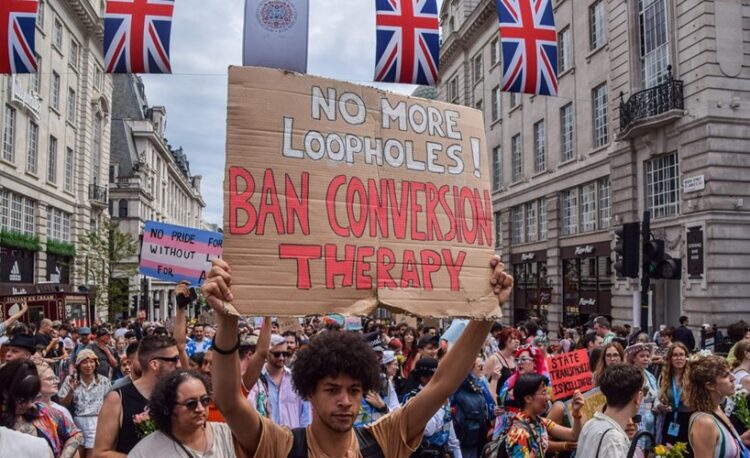By Charlotte Webster-
The Equality and Human Rights Commission (EHRC) has issued a firm call for the inclusion of legislation to ban “harmful conversion practices” in the upcoming King’s Speech.
In July, parliamentarians and campaigners urged the UK Government to bring forward legislation to ban conversion therapy, two week after a Trans Pride March in London had called for a ban on the controversial practise.
Signatories to the letter included the Suffragan Bishop in Europe, the Rt Revd David Hamid, and the Bishops of Dorchester and Buckingham, the Rt Revd Gavin Collins and Dr Alan Wilson, as well as a retired Bishop of Liverpool, the Rt Revd Paul Bayes.
The letter, to the Prime Minister, and the Minister for Women and Equalities, Kemi Badenoch, described the delay in bringing forward legislation to ban conversion therapy is “a moral failing with dire consequences”.
Conversion therapy is aimed at changing or suppressing an individual’s sexual orientation or gender identity, and campaigners argue that it has caused irreparable harm to the lives of LGBTQ+ individuals.
Over the years, the issue has witnessed numerous delays and policy reversals, with the UK government pledging to address the matter since 2018. This year, in January, the government promised to publish a draft bill imminently, reigniting hopes for decisive action.
The EHRC’s Chairwoman, Baroness Kishwer Falkner, has communicated the need for legislation banning conversion therapy to Women and Equalities Minister Kemi Badenoch.
She emphasized that such legislation is essential, given the prolonged suffering and harm inflicted by these practices.
Baroness Falkner acknowledged the complexity and sensitivity of this issue and emphasized the necessity of clear terminology and definitions in any potential legislation.
She also stressed that the bill should be proportionate and evidence-based, taking into account its wide-ranging impacts.
The journey to address conversion therapy in the UK has been marked by political changes and shifting stances. In July 2018, then-Prime Minister Theresa May’s government first promised to ban these practices. Initially, universal proposals were announced to protect all LGBTQ+ individuals.
However, in March 2022, Prime Minister Boris Johnson unexpectedly shelved plans for legislation, citing “complexities and sensitivities.” This decision raised concerns about the scope and inclusivity of any potential ban.
In January of the same year, the government announced its intention to ban conversion therapy for all, explicitly including transgender individuals in its scope.
In a notable development, the Shadow Women and Equalities Secretary, Anneliese Dodds, recently pledged that a Labour government would introduce a “no loopholes” trans-inclusive ban on conversion therapy.
This demonstrates the increasing bipartisan support for comprehensive action against conversion therapy.
Supporters of conversion therapy say individuals have the right to decide whether they want to undergo such a therapy, and there is no room for government intervention in such matters.




